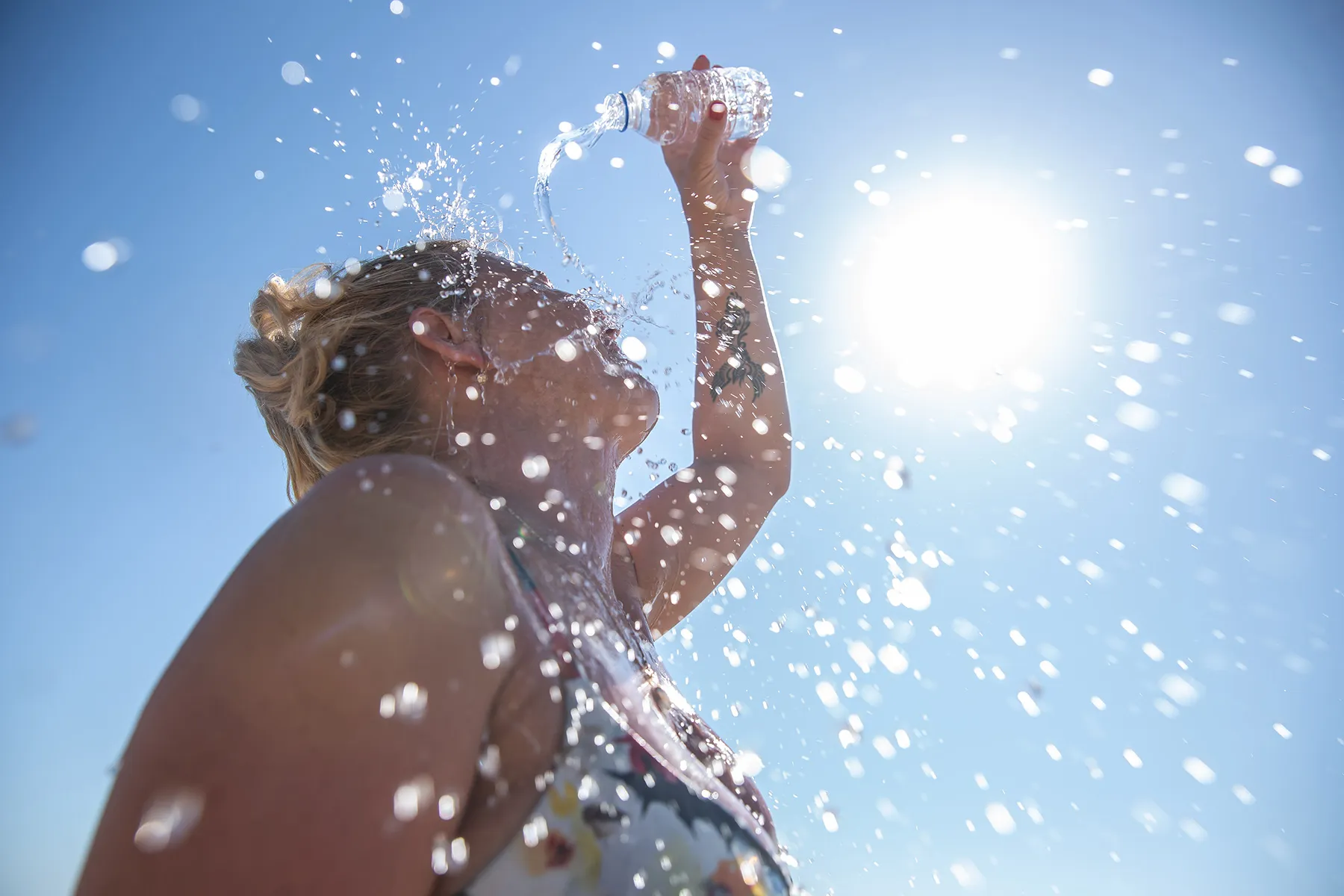July 21, 2023 – Richard Carter still smiling as the heat rises outside of Walt Disney Studios in Burbank, CA
Richard Carter, a background actor in his 50s, spent the morning picketing with other actors outside of the Walt Disney Studios in Burbank, CA. As the temperature reached 93 F at noon, accompanied by a hot breeze, Carter remained in good spirits. Some may refer to him as an “iguana,” likening him to the reptiles that thrive in temperatures of 95 degrees. Carter acknowledges the heat but doesn’t linger on it. “I say, ‘Damn, it’s hot,’” he comments, quickly adding that he prefers the heat over the cold.
Carter recalls a freezing day in Chicago with sub-20-degree temperatures and a wind chill that made it feel like 60 below. He vividly remembers waiting for a bus that was 20 minutes late with his wife. It was that day they decided to move west. Regarding the 90 F-plus heat in Los Angeles, he says, “It didn’t feel that bad today.”
The scorching heat of the summer is undeniable and hard to overlook. According to the National Integrated Heat Health Information System, over 100 million Americans were under heat alerts as of July 20. Cities like Phoenix, known for their hot climates, have been setting records this summer, reaching temperatures of 110 F for 21 consecutive days. The World Meteorological Association declared July 10 as the hottest week on record globally. Experts warn that more extreme heat is yet to come. Learning how to cope with the heat has become a necessary skill. “We all have to learn to live with it,” says Dr. Patrick Fink, an emergency medicine doctor and wilderness medicine specialist at St. Charles Health System. He predicts that the heat is here to stay.
Can Heat Tolerance Be Attributed to Genetics?
The debate regarding whether heat tolerance is genetic or not divides experts. Dr. Thomas E. Bernard, a professor of public health at the University of South Florida, suggests that heat tolerance is partially genetic. He compares it to natural athletic skills, where some individuals possess a greater ability to withstand high temperatures. However, Dr. Graham M. Brant-Zawadzki, an assistant professor of emergency medicine, disagrees, stating that genetics have a smaller role in heat tolerance. Factors such as weight, health conditions like diabetes, certain medications, and age play a more significant role. Regardless, Brant-Zawadzki believes that everyone can improve their heat tolerance relative to their own baseline.
Training and Adaptation
Building heat tolerance through regular physical activity in high temperatures is essential, says Dr. Fink. As an avid mountain biker, he believes he has acclimated to heat due to consistent exposure. Similarly, Dr. Brant-Zawadzki suggests training judiciously with a doctor’s approval. By subjecting oneself to about 20 minutes of physical stress followed by a 10-minute cooling period a few times a day, the body responds on a cellular level, producing more “heat shock” proteins. These proteins assist in better heat regulation.
For employers aiming to prevent heat-related illnesses among workers, the Centers for Disease Control and Prevention (CDC) and the National Institute for Occupational Safety and Health (NIOSH) recommend gradual acclimatization to heat. Increasing the duration and intensity of work in a hot environment gradually allows employees to adapt and build heat tolerance.
Reconsidering Air Conditioning Use
Avoiding excessive use of air conditioning can aid in acclimatization to the heat. Dr. Brant-Zawadzki advises setting the air conditioner no more than 10 degrees cooler than the outdoor temperature. Extreme temperature differences, such as going from a scorching 105 degrees outside to a chilly 65-degree restaurant, hinder heat tolerance development.
Supplements and Future Research
Researchers are studying the potential role of the supplement betaine, also known as trimethylglycine, in improving heat tolerance. Animal studies show promising results, acting similarly to heat shock proteins. However, its effectiveness in humans is yet to be established. Ongoing research may provide more conclusive evidence in the future.
Real-Life Heat Coping Strategies
Conner Ohlau, a project manager in Scottsdale, AZ, who prefers outdoor work, has developed effective strategies for handling extreme heat. He emphasizes the importance of sun protection, wearing hats and neck covers to shield himself from intense sun exposure. Ohlau advises regularly cooling the neck, changing shirts, and consuming ample water on hot days. Additionally, he avoids alcohol during the workweek, recognizing its dehydrating effects.

